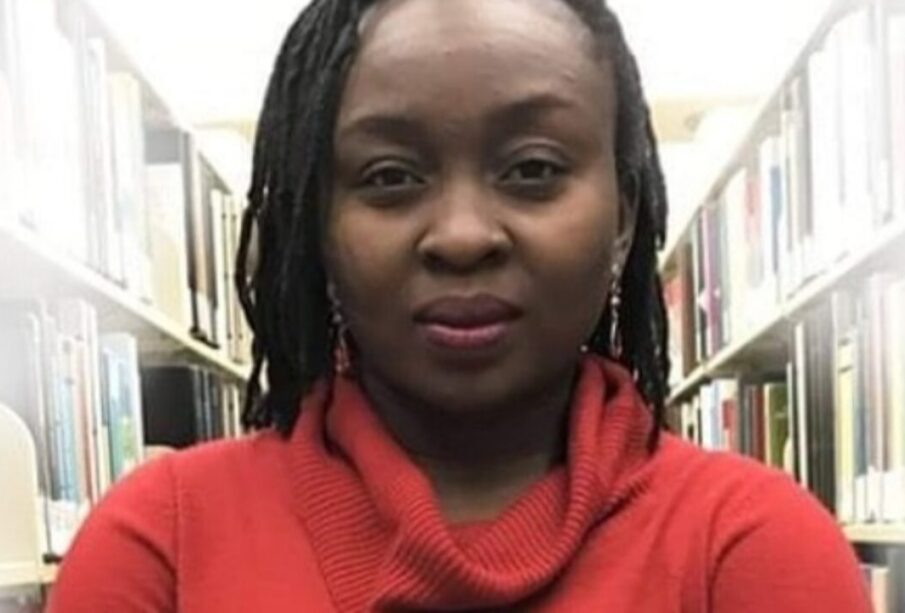Ekweremadu: The man who ‘loved’ Nigeria [OPINION]

Abimbola Adelakun
In the opening pages of his book, Who Will Love My Country: Ideas for Building the Nigeria of Our Dreams, Senator Ike Ekweremadu unapologetically declared his love for Nigeria saying, “I love Nigeria and will forever love it.” The book contents, the regular sweet nothings Nigerian leaders preach but which they cannot stretch themselves to live by, now take a new meaning in the light of his fall from the grace of deputy Senate presidency to a convicted prisoner. When you consider the past 11 months when he and his wife, Beatrice, were tried in a London court for organ trafficking, you will understand why the man loved Nigeria as fiercely as a scoundrel raised by indulgent parents.
Hardly had the arrest of Ekweremadus been announced when sympathies poured in for them. From Senators Dino Melaye and Smart Adeyemi to the Labour Party presidential candidate Peter Obi, they were never short of commiseration. Ebonyi State Government announced it stood with his family and asked the UK Government to be considerate of their children’s plight. Speaker of the House of Representatives Femi Gbajabiamila too requested the Nigerian High Commission in the UK to give him needed support (and those ones hired a lawyer for him shortly after). Colleagues in the Senate visited the Ekweremadus, and some even attended the court sessions to show support. Former president Olusegun Obasanjo the letterman wrote to the Chief Clerk of the Central Criminal Court of England to beg for mercy in their sentencing. Speaker of ECOWAS Parliament, Rt. Hon. Dr. Sidie Mohamed Tunis, and Head of Diplomatic Mission to the Federal Republic of Nigeria, Dr Duru Hezekiah, also appealed to the UK Government for leniency. Both chambers of the National Assembly also begged for mercy. Even the Chair of Nigerians in Diaspora Commission, Abike Dabiri-Erewa, who once advised Nigerians to shun crimes while abroad set aside her conviction and joined in the plea for leniency. Her disdain for Nigerians caught in the vortex of crime abroad does not seem to extend to the political elite.
In all the demonstration of anxieties by several highly placed Nigerians not used to seeing their fellow “big man” in jail was a glaring omission: some fellow feeling or even as much as a thought spared for the other Nigerian—the poor young man whose kidney would have been harvested— involved in the matter. There were times during the months of trial I wondered how that young man felt when he saw the overwhelming support from official quarters for the person who was going to rob him of his life. He must have felt lonely, invisible, unsupported, and inconsequential.
With all the high-powered support he received, it is understandable why Ekweremadu would love Nigeria with all his heart. Who would not love a country where the powers that be commit themselves to work in your favour? Why would he not love a country that sides with him against his victimised countryman? The demonstration of support that the Nigerian political class offered Ekweremadu against that young man proved how much our society lacks an appreciation of justice. If that young man had walked into a Nigerian police station to report that a big man wanted to harvest his organs, nothing would have happened. Apart from our lax laws on organ harvesting, our justice system abhors the idea of punishing a big man for an infraction committed against a lowly nobody. In a country where people buy human body parts for N50,000 or even less, Ekweremadu would even have been commended for offering N3.7m. He would even have been garlanded to assuage the shame of the allegation. He would be given the title of “Fiwajoye” or something similarly ridiculous.
Given what we know about the crime of the Ekweremadus, I am baffled some Nigerians think it was their parental instinct that went on overdrive. Even if you do not find their attempt to jump the long queue for organ donation immoral, how about the paltry sum they offered their victim? The boy is around the same age as their daughter. If the transaction had sailed through, it would have been tantamount to shaving off a part of the young man’s life to extend their daughter’s own. What would have at least been moral in such a shady transaction would be to make a willing donor an offer that can at least guarantee them a quality life. Imagine the victim had been returned to Nigeria and fallen sick sometime later, how would he have coped? Even with all the mad love Ekweremadu proclaimed for Nigeria, he did not entrust his child’s life to the dilapidated hospital system in the country.
One clown who labelled himself a “deep thinker” even blamed the Ekweremadus’ travails on the average Nigerian southerners’ tendency to pull down their own. He said if the person involved were a northern Muslim, he would have sought refuge from a mosque rather than inform the law enforcement agents. Such a mindset, reeking of the southern Nigerian condescension that serially stereotypes the average northerner as meek and lacking agency, is irritating and problematic on all levels. Why should the person whose life was undervalued hesitate to affirm their self-worth so that one big man somewhere would not be accountable to the law? The road that leads home might be far, but even the lowly-born slave has a father.
In a country like Nigeria where people with kidney disease and who can afford the expense have to go to India for medical care, what would have become of that poor guy if they had taken his kidney for a measly sum? The fact that the Ekweremadus priced the young man’s life less than the cost of a business class flight ticket from Nigeria to London shows they are depraved and wicked. Actually, what they proposed to do is what Nigerian leaders have done since forever. They take and take and take from the people, and that is all they know how to do. They have been robbing our society of the vital organs that it needs to function, and it is nothing to them to try to take a bodily organ just to shore up their own lives.
With the way the case panned out, I want to believe that the young man redeemed from the snare of the fowler will be forever grateful to the British legal system. To those who habitually steal from us, the young man’s body did not belong to him. He was a mere bag of flesh, available for their use and abuse. But for the integrity of the British medical system, the young man’s body would have been taken apart and used as spare parts. I can bet that he too will now love Britain as much as—and perhaps even more than—Ekweremadu loved Nigeria. His love for that country and its justice system will be far more sincere because, while Ekweremadu loved Nigeria for letting him believe he could take what did not belong to him, the British system ennobled this would-have-been victim. The young man might have been poor and lowly born, but they saw a human deserving dignity.
Funnily enough, at the public presentation of Ekweremadu’s book launch in 2016, part of his speech noted that “the greatest honour and tribute we can pay to Nigeria is to love it. To love Nigeria requires us to fundamentally revise and reexamine our attitudes, our values, and how we treat one another.” Events around his conviction show why he could not but love a country that lets him do whatever he likes. The trouble with being a brat is that if your parents fail to straighten you out within the threshold of the homestead, outsiders will discipline you on their behalf.
Culled from The Punch










